Showing 37–48 of 151 results

This volume explores the various complex conceptual dimensions of sound: ranging from its mystical and traditionally meta-physical to its present-day developments, from its perceptions in indigenous musical theory to its futuristic applications.
Dhvani (Sound/Nada) is a profound experience that envelopes us from birth to death. Yet it is not easily fathomed. Its description by an accoustic engineer is very different from that of a musician, a linguist, a city planner, or a neurologist. The IGNCA (Indira Gandhi National Centre for the Arts), New Delhi, organized a 2-day International Seminar: 24-25 October 1994, not only to understand the experiential, cross-cultural perceptions of sound, or not just to discourse about its definitional subtleties as are encountered in the ancient texts of the East and the West; but also to bring together its perceptions in tradition, modern accoustics, and even in the ongoing environmental studies. In todays living conditions, the Dhvani-theme is specially crucial for sound has become a major pollutant both in terms of resonances and accoustics. Assembled in this volume are the presentations of the IGNCA seminar, exploring the various complex conceptual dimensions of sound: ranging from its mystical and traditionally metaphysical to its present-day developments, from its perceptions in indigenous musical theory to its futuristic applications. With focus around five thematic areas of the seminar: (a) Sound as the Source of Creation and Sources of Sound, (b) Sound and the Senses, (c) Sound and Space, (d) Sound and Time, and (e) Symbols of Sound and Sonic Designs, the authors open up the possibilities of interaction among different disciplines involved in the study of dhvani-phenomenon.
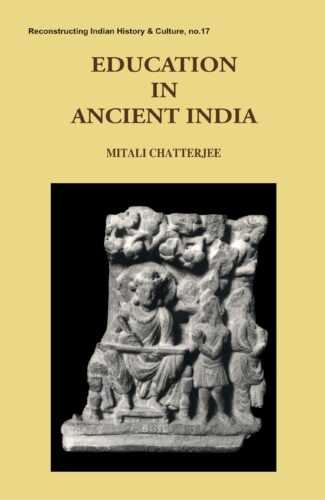
The book is an in-depth study of the socio-cultural life of the Mising tribe of Assam. It studies the factors influencing their material culture, traditional life pattern, art and craft activity et al. and tries to analyze the impact of modernisation, acculturation and urbanization faced by them.
Mitali Chatterjees study of education in ancient India focusses chiefly on over two hundred years: ad 319-550, of the reign of Imperial Guptas, which has been variantly described as the Golden Age, Periclean Age, or even the Age of Hindu Renaissance. It was a time when literature, arts, and sciences flourished in a degree beyond the ordinary. These achievements are inconceivable without a well-evolved system of education. With its theme like education, covering such a large period of time the book traverses a terrain so far little charted. It is indisputably a work of painstaking research trying, as it does, to retrieve educational set-up of classical India from an astonishing mass of contemporary sources, including notably (a) Puranas like Markandeya, Matsya, Vayu, Vishnu, and Vishnudharmottara; (b) Smriti texts like Vyasa-smriti, Harita-samhita, and Pitamaha-smriti; (c) Literary classics of Kalidasa, Vishakhadatta, Kumaradasa and others; (d) Jaina and Buddhist works of scholars like Vasubandhu and Dinnaga; (e) Astronomical/scientific treatises of Aryabhata and others; (f) Foreign travellers narratives; and (g) Other miscellaneous writings on grammar, linguistics and polity besides inscriptional and numismatic material. Notwithstanding the ethical-cum-religious overtones of ancient Indian education, the pathashalas (schools) and universities taught Sanskrit, literature, arts, sciences, philosophy, laws, and even rituals. In conclusion, the author demonstrates how the educational system of the Imperial Guptas, in certain ways, anticipated some of the fundamental theories given by great modern educationists. A useful work for anyone involved with education; whether as a historian, a professional or a scholar.
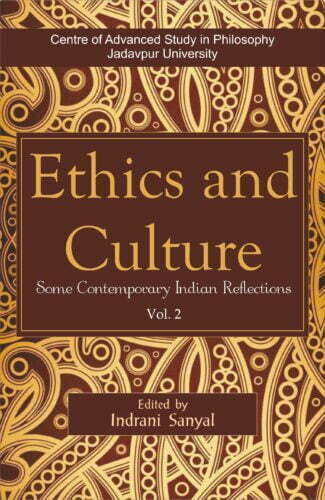
The present anthology is a collection of eleven articles on distinguished thinkers of contemporary India such as Krishna Chandra Bhattacharya, Sri Aurobindo, Binoy Kumar Sarkar, Manabendra Nath Roy, Balaram Hadi, Ramendrasundar Trivedi, Muhammad Iqbal, Debendranath Tagore, Keshub Chandra Sen, Sister Nivedita and Iswar Chandra Vidyasagar.
The present anthology is a collection of eleven articles on distinguished thinkers of contemporary India about values in general written by the members of the Value Group, Centre of Advanced Study in Philosophy, Jadavpur University. The eleven thinkers whose perspectives are elaborated in this volume are Krishna Chandra Bhattacharya, Sri Aurobindo, Binoy Kumar Sarkar, Manabendra Nath Roy, Balaram Hadi, Ramendrasundar Trivedi, Muhammad Iqbal, Debendranath Tagore, Keshub Chandra Sen, Sister Nivedita and Iswar Chandra Vidyasagar.
In this volume all the authors, in their own ways, are interested to look into the viewpoints of some of the renowned contemporary Indian thinkers to understand their perception of values and their suggested remedies for the elimination of social evils. Each author of this volume has endeavoured to interpret a thinker of his or her choice meticulously and essays are written in plain and simple English.
These profiles should attract the attention of a wide range of audience: from general readers to those of sociology, history and philosophy.
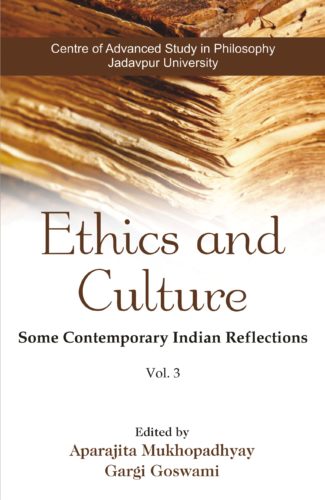
It explores the contributions of the great thinkers of modern India regarding the value system of our country. The perspectives of Bankim Chandra Chattopadhyay, Bal Gangadhar Tilak, Dwijendranath Tagore, Tarabai Shinde, J.N. Mohanty and Sri Ramakrishna Paramahamsa have been discussed in detail.
The present volume of Ethics and Culture contains six articles of renowned teachers of Philosophy who are also the members of the Value Group, Centre of Advanced Study in Philosophy, Jadavpur University. In all these articles authors have explored the contributions of the great thinkers of modern India regarding the value system of our country. Here the perspectives of Bankim Chandra Chattopadhyay, Bal Gangadhar Tilak, Dwijendranath Tagore, Tarabai Shinde, J.N. Mohanty and Sri Ramakrishna Paramahamsa have been discussed in detail as all of them have a distinct view and faith on the traditional cultural beliefs of India and also have taken a critical approach to judge the mundane, orthodox attitude of people.
The authors have explained the views of these great thinkers as their unique interpretations about Indian tradition can be used as a weapon against cultural encroachment and intolerance. The book, thus, helps to revive the true essence of our culture which is veiled by many socio-political factors of the present world.
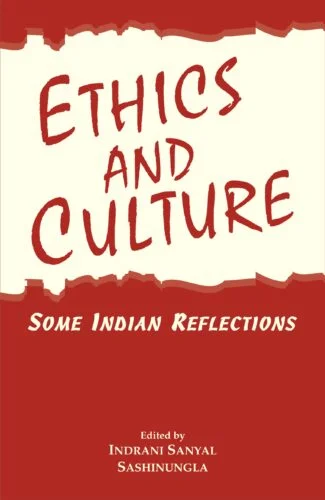
The book explores values that involve mans existence and his interaction and interrelations with others and deal with the Vedantic, political and economic thoughts of eminent saints and thinkers of India. The articles also include various viewpoints with the hope to ignite the spirit of better understanding of values.
The anthology Ethics and Culture: Some Indian Reflections looks into global and local questions pertaining to individual morality and social ethos in the larger domain of man in relation to man, in relation to various domains of society and also in relation to nature/world/cosmos. A group of philosophers have presented a panorama of pluralistic Indian perspectives that include classical, traditional Vedic, contemporary and tribal viewpoints with the hope to ignite the spirit of better understanding of values. The result is a well-planned text for students of philosophy, sociology, anthropology and politics and an analytic and authentic reference for researchers with interest in these areas of thought.
Any forward-looking reader with a wider interest may find this anthology to be quite useful.

This book is an indispensable guide for an up-to-date system of values. What once used to be deadly sins threatening human salvation have now become socially acceptable; envy and greed are the driving forces behind a ruthless economic world. The deadly sins are as relevant today as ever before and it would be advisable not to leave the field open, but rather to counter them with a foundation of values that are up to date.
This book is an indispensable guide for an up-to-date system of values. What once used to be deadly sins threatening human salvation have now become socially acceptable; envy and greed are the driving forces behind a ruthless economic world; there are outbreaks of anger on the streets and in the football stadiums. The name of the game is manifold: stubbornness, impatience, narcissism and disloyalty.
Notker Wolf has taken an look at an interesting development. He finds examples in the Bible, in the ancient myths, in current affairs. His conclusion: the deadly sins are as relevant today as ever before and it would be advisable not to leave the field open to them in our (western) economic and social systems, but rather to counter them with a foundation of values that are up to date. Readers will recognize themselves and our day and age in the mirror of this book.

The book studies various phases of ancient Indian history and culture with a fresh approach by interpreting historical information. Relying on ancient Indian literature and outside accounts and explaining facts and theories lucidly, it presents rich insights on the social, economic, political and religious life of ancient Indians.
Facets of Ancient Indian History and Culture: New Perception is an attempt to study various phases of ancient Indian history and culture in a new light and present fresh approaches to understanding and interpreting historical information and evidences. Prof. G. P. Singh here examines aspects of ancient Indian social, economic, cultural, religious and political life, propounding theories for discussion and opening up new avenues for research. Examining works on the subject by eminent scholars, he offers valuable information, full with rich insights and innovative viewpoints, on the Aryans, the Cinas, society in the period of the Buddha and Mahavira, formation of classes, castes, and social and economic associations and institutions in the latter half of the first millennium bc, religious foundations of society at the time of Manu and Patanjali, pre-Persian expeditions into north-west India and political status of Assam under the Guptas. For the purpose, he relies upon a vast number of sources from texts of the Vedic and post-Vedic period and classical accounts of the Greeks and the Romans as also historical records of the Chinese, the French and the Germans to inscriptional and other findings, interpreting them all scientifically and objectively. The study explains facts and theories lucidly and with great stress on their historical accuracy, where concerned, and value, rendering the work extremely interesting and useful to students and scholars from varied disciplines history, archaeology, anthropology and sociology.
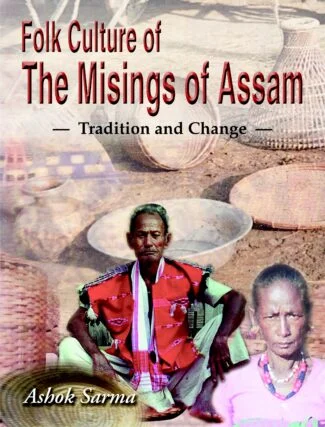
The book is an in-depth study of the socio-cultural life of the Mising tribe of Assam. It studies the factors influencing their material culture, traditional life pattern, art and craft activity et al. and tries to analyze the impact of modernisation, acculturation and urbanization faced by them.
The book is an in-depth study of the socio-cultural life of the Mising tribe of Assam, the second largest among the plain tribes of Assam. Studying their oral narratives, it deals with the factors that influence the material culture of the tribe and delve, broadly, into their folk art, craft, architecture, costumes and ornaments and food. It examines the way their traditional life pattern and legends, myths and tales are interwoven in aspects of their artistic and cultural life, painting and sculpture, specific preoccupations as that of doll-making and the tradition of swastika emblems, for instance. Dr. Sarma studies a vast range of their art and craft activity: weaving and embroidery, designs depicted, cane and bamboo works, wood works, metallic tools and other implements, earthen pottery, aspects of building, traditional cooking process and food types and preservation. He, significantly, tries to analyse the process of modernisation, acculturation and urbanization the Misings are undergoing and the impact of these factors on the tribes people which is resulting in, among other things, erosion of their traditional life and folk culture. The work will interest students and scholars of Indian anthropology, sociology and specifically of folk cultures and traditions. General readers will also find the work extremely interesting and informative.
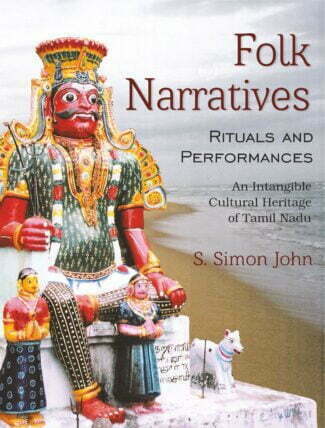
This illustrative monograph systematically documents, investigates and discusses different aspects of Intangible Cultural Heritage (ICH) of Tamil Nadu childrens folklore, proverbs, material folk culture, oral narratives, folk gods and goddesses, and ritual practices and enables one to grasp the rich cultural heritage of Tamil Nadu at ease.
Folk Narratives: Rituals and Performances reflects the world-view of the traditional societies and it is considered as an Intangible Cultural Heritage (ICH) of a particular community or society. This study investigates the culture, in a particular sociocultural context, of the multifaceted Tamil society through numerous rituals, offerings, vows, customs, practices, belief systems, performing folk arts, fairs and festivals, dance and music, material culture, etc. which are deeply rooted in their cultural moorings, and practised and closely associated with the folk religion, life-cycle ceremonies and social psychology.
This illustrative monograph systematically documents, investigates and discusses different aspects of ICH of Tamil Nadu childrens folklore, proverbs, material folk culture, oral narratives, folk gods and goddesses, and ritual practices. A number of colourful photographs enable one to grasp the rich cultural heritage of Tamil Nadu at ease.
The monograph will be of interest to scholars and researchers across humanities and social sciences especially those in folklore, anthropology, sociology, cultural studies, religion, ritual studies, art and performance studies. It will also appeal to the general reader.

The folk songs in this collection are given in vernacular Hindi language, transliterated and translated, to reach readers with different backgrounds. These songs tell the story and customs of celebrating life-cycle ceremonies, welcoming seasons, and related mythology.
Blowing of a conch-shell and/or ringing of a hand bell and/or singing a song to welcome the evening twilight in front of a tulsi plant is a nostalgic scene from Indias past. For the majority of the young Indian population, this daily routine is only depicted on picture postcards or in Bollywood movies. Folk songs in this book were recorded in the 1970s. Since Independence, India has been undergoing fast technological advances; a wave of new internationalism is absentmindedly sweeping away rural traditions. Singing and playing of traditional folk songs and ensembles for appropriate ceremonies are becoming less and less popular; instead, movie songs and modern brass bands are appreciated. Each folk song in this collection is like an artefact in an archaeological museum. These songs tell the story and customs of celebrating life-cycle ceremonies, welcoming seasons, and retelling our mythology. The songs are given in vernacular Hindi language, transliterated, and translated, to facilitate understanding by readers with different backgrounds. The original field recordings have been deposited at the Archives and Research Center for Ethnomusicology of the American Institute of Indian Studies at Gurgaon, Haryana, India, where they are available for listening and recording details.

The book explores the concept and experiences of life after death based on religious insights on the subject and experiences of human souls on the threshold of death as recounted by doctors. It examines the sacred texts of religions, like the Holy Bible, the Vedas, the Srimad Bhagavad Gita and the Upanisads for a broad understanding of the subject.
The book explores the concept and experiences of life after death based on religious insights on the subject and experiences of human souls on the threshold of death as recounted by doctors. It examines the sacred texts of religions, like the Holy Bible, the Vedas, the Shrimad Bhagavad Gita and the Upanishads for a broad understanding of the subject. It deals in particular with aspects of life after death as detailed by Christianity: the General Resurrection, Last Judgement, Hades, Paradise, Heaven and Hell, the concept of the Son of God and His dying on the cross as propitiation for the sins of man. It elaborates on the experiences of the soul after death and on the life after death as such by thoroughly studying the Bible. It reveals Biblical insights on Satanic deceits to enter the minds of people who are spiritually devoted, the soul departing from the physical body, and compassion, solace and love in the spiritual world. The volume showcases the experiences of those nearing death which include new feelings and sensations as a spiritual being, meeting with other spirits and viewing the Light, that is, Christ Himself when passing through death. Mr Isaac emphasises the need to be faithful and perform acts of divine love and righteousness in all sincerity in order to prepare oneself for the eternal life in the hereafter.
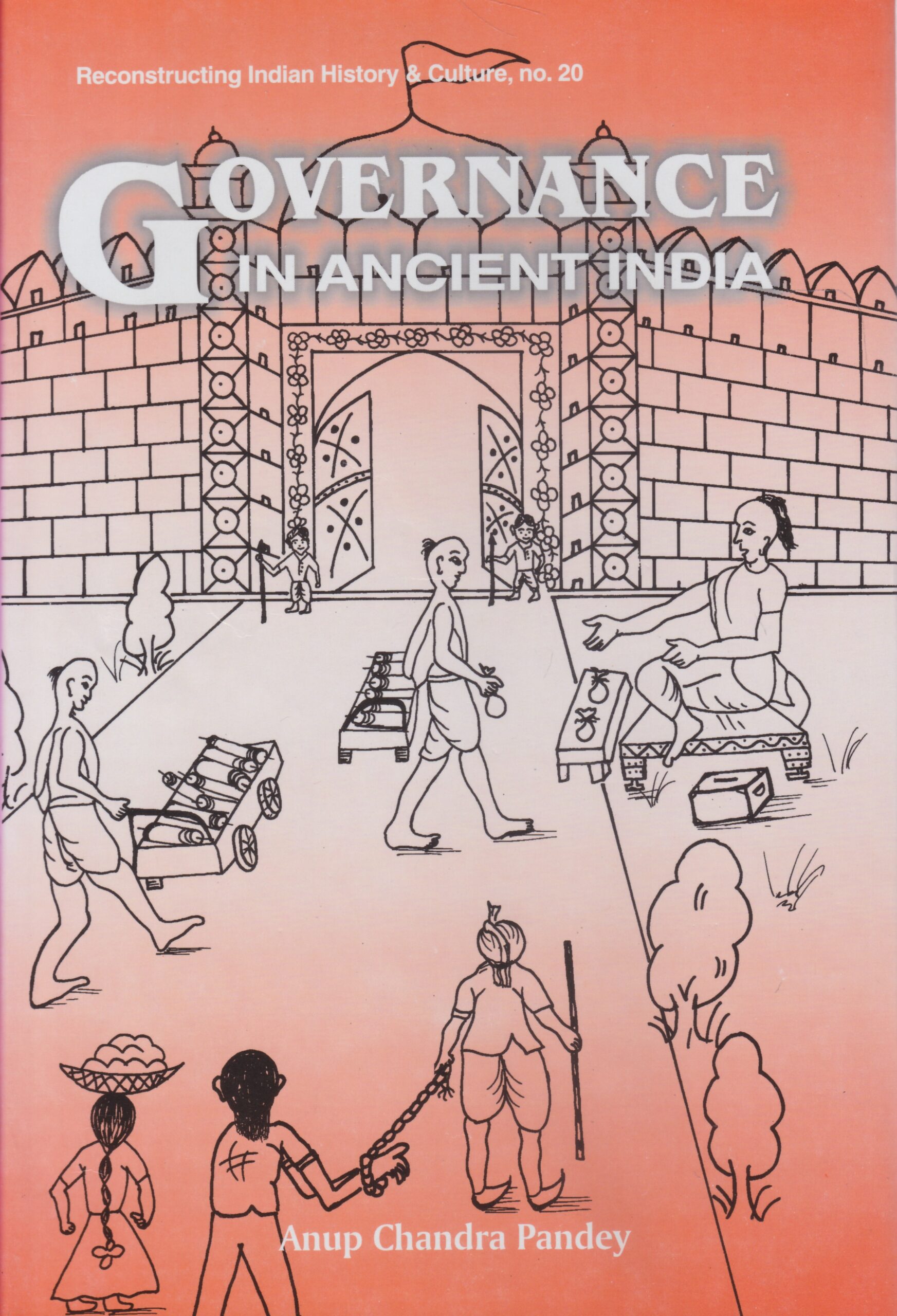
The research examines the nature, development and function of the civil service in ancient India. It explains the ancient perceptions of good and ethical governance study literary, inscriptional and numismatic evidence.
From the Vedas to Sutra and Smriti texts, from the time honoured epics to the foreigners travelogues and literary classics leave alone Kautilyas far-famed Arthashastra and other treatises of its genre, ancient Indian literature carries myriad references, bearing out not just the principles, philosophy and mechanisms of good governance, but the existence of a well-organised, hierarchical civil service as well. Yet Dr. Pandeys happens to be the first ever research effort to consider governance/civil service in ancient India: in all its different manifestations. Covering a vast time-span: from the Vedic times to about the seventh century ad, Anup Pandeys research explores the evolution, nature, scope, functions, importance, and other kindered aspects of the ancient Indian civil service with meticulous description of its varying contours during the reigns of the Mauryas, Indo-Greeks, Shakas, Pahlavas, Kushanas, Imperial Guptas, and Harshavardhana. Also, the book tries to unveil the ancient Indian politys perceptions/norms/modes of good, ethical governance, largely on the basis of sacred works, like the Ramayana and the Mahabharata. Together with inscriptional and numismatic evidence, the author has marshalled an astonishing mass of literary sources to show, beside a lot else, how an efficient civil service in ancient India was viewed as an imperative for the vitality of the state; and why, therefore, high-ranking functionaries/bureaucrats, entrusted with legislative, executive, financial and the like offices, or with policing and military duties, were often scrupulously chosen from among the politys best talent. Invaluable to the scholars of anceint Indian history, political science and government.
| × |
|
Linguistic Representations 1 x ₹891.00 |
| × |
|
Assimilation of Brahmanism into Buddhism 1 x ₹1,890.00 |